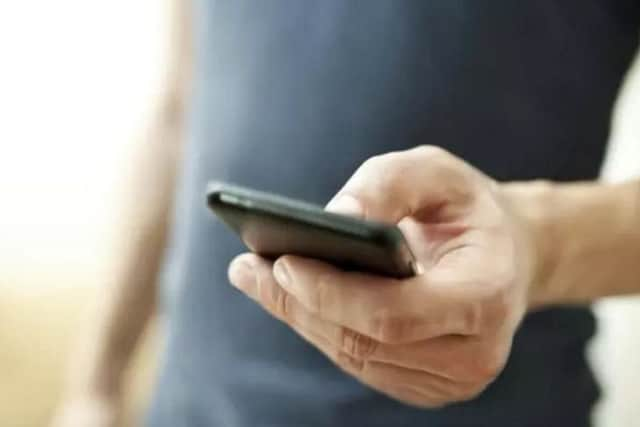You're not charging your phone correctly - here's how to extend its battery life


There can be few things more frustrating than your phone running out of battery.
Significant investment from tech giants has been carried out to make batteries last as long as possible.
Advertisement
Hide AdAdvertisement
Hide AdLet’s face it, as phone users, we all try and avoid letting our phone batteries run too low, but how much damage is done to the power cells by constantly recharging?


However, there are plenty of simple ways you can ensure you phone battery doesn’t get poorly and lasts longer.
While some still believe that you need to let your phone go all the way to zero, this is no longer the case.
Writing on TechAdvisor.co.uk tech guru Simon Jary issued some of the top tips for prolonging your phone’s battery life and put to bed some of the old myths that surround phone battery life.
You don’t need to let your phone ‘go to 0%’


Advertisement
Hide AdAdvertisement
Hide AdDisbanding this myth, Tech Advisor’s Mr Jary said: ‘This is about batteries remembering remaining charge if you don’t let them go all the way to zero too often.
‘So a battery frequently charged from 20 per cent to 80 per cent might “forget” about the 40 per cent that’s left uncharged (0-20 per cent and 80-100 per cent).
‘Sounds crazy but that’s sort of true - but only for older nickel-based (NiMH and NiCd) batteries, not the lithium-ion batteries in your phone.
‘Lithium-ion (Li-ion) batteries don’t suffer the memory effect so you almost need to do the opposite: charge them often but not all the way throughout the day, and don’t let them drop to zero.’
Should your phone battery be fully charge every day?
Advertisement
Hide AdAdvertisement
Hide AdSome people continue to charge their phone overnight or until it reaches 100 per cent, never putting it on charge for a short burst of juice.
However, this can also have a negative impact.
Advisors say you should only charge your phone once a month, and let it hit that 100 per cent mark.
Doing this will recalibrate the battery and this can also be applied to laptops.
Is it ok to charge your phone overnight?
Most smart phones do stop charging when they are full so overcharging is no longer a major issue.
Advertisement
Hide AdAdvertisement
Hide AdMany people opt to charge their phone when they are asleep, and this shouldn’t have a massive impact on battery life or performance.
However, some tech experts say that you should remove your phone from its case when charging overnight in case of overheating.
What’s the best way to keep phone charged?
With Li-ion batteries you should try and keep them at 50 per cent or more most of the time.
Even though it is important to try and keep it above 50 per cent you should not allow it to fully recharge to 100 per cent.
Advertisement
Hide AdAdvertisement
Hide AdWhile it’s difficult to maintain, and won’t have a massive impact on your battery life, it will shorten the battery lifespan.
Is it ok to use fast charging? And is it safe?
A feature on many modern phones, especially Androids, is fast charging.
The option allows users to charge their phone quicker.
According to Simon Jary: ‘These phones have a special code usually located in a chip known as the Power Management IC (PMIC) that communicates with the charger you are using and requests that it send power at a higher voltage.
‘The iPhone 6 doesn’t feature fast charging, but is smart enough to recognise when you use a higher-amp charger (like the one you get with the iPad), and that’s a good thing because fast charging will heat up that Li-ion battery and cause it increased wear and tear.
Advertisement
Hide AdAdvertisement
Hide Ad‘For the same reason, you should never leave your phone in a hot car, on the beach or next to the oven.
‘A hot battery will suffer long-term effects on its lifespan. And so will a super-cold one, so don’t leave your device in the freezer or out in the snow.
‘If you can, switch off fast charging on your Android phone.’
Will any charger do?
There are a number of alternative charges that people use, especially if they are on the go.
Advertisement
Hide AdAdvertisement
Hide AdCheaper replacements can also be used esepcially if a charger is lost or damaged, but do they impact battery life?
According to experts, the majority are safe and appropriate to use but some have caused fires when they overheat.